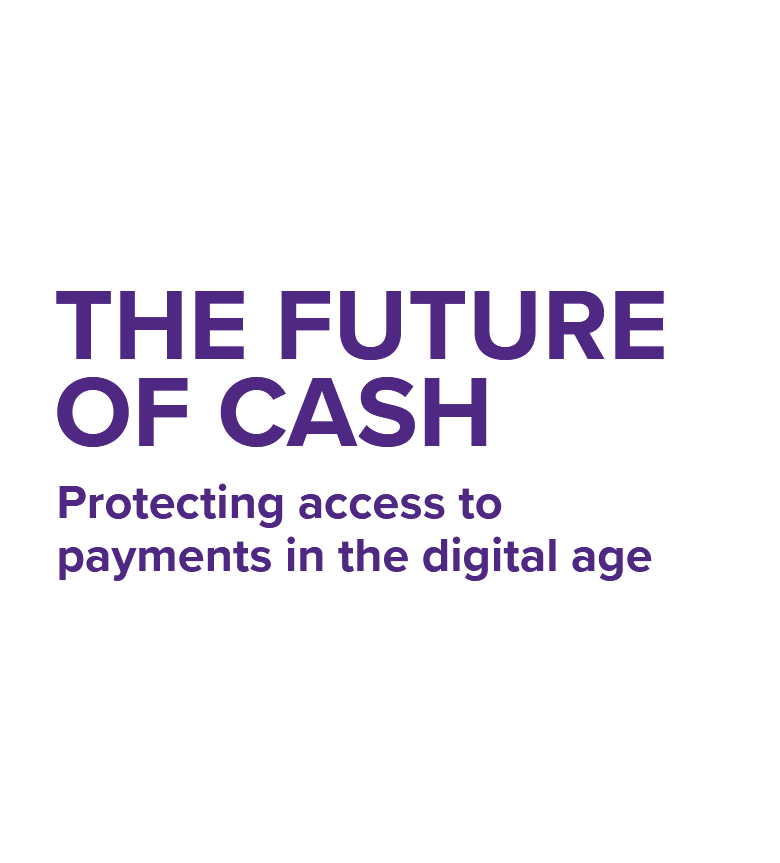The Future of Cash
The ability to make payments is fundamental to any individual’s participation in the economy. We believe that people should be able to use their money in the way they choose, and that fair and low-cost access to payments should be recognised as a universal need, like water or electricity.
Technology is revolutionising money and payments. But we won’t end up with a system that’s fairer, more democratic and sustainable unless we design it that way.
There are now a myriad of different ways to pay, with innovations like contactless cards, mobile payments and digital currencies gaining popularity. This raises big questions about who has control over this essential function of our financial system, and who has access to it.
The move to electronic payments means that more and more, we have to rely on private financial institutions to access our money. Whereas notes and coins are created under the Bank of England’s supervision, the money in your current account exists only as numbers on a computer screen, and is legally the property of your bank.
Leaving the payments system in the hands of big banks means that we’re all at risk from their lending activities, and banks have to be propped up by the taxpayer to avoid economic collapse. People who don’t have access to bank accounts are excluded.
We want to take advantage of new technology to reshape our payments system in the public interest. We’re proposing that the Bank of England issues a digital version of cash. Just like physical notes and coins, you’d be able to store your money and send and receive payments without a bank account. This wouldn’t replace physical cash, and we believe your ability to use notes and coins should be protected.
A “digital cash” system would remove a need for the Government to back up “too big to fail” banks, because money stored at the Bank of England would be risk-free. By increasing the number of companies which are able to provide current accounts, it would reduce the concentration of economic power in a few large institutions.
Download the full report here.
(Free, PDF, 32 pages)
Contact:
For press enquiries, please contact us at press@positivemoney.org.
